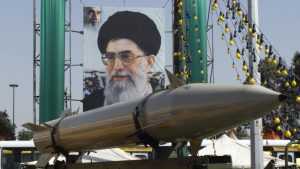The revelations from the German Federal Intelligence Service accuse Tehran of making 32 procurement attempts in 2016.
It said: “There were 32 procurement attempts… that definitely or with high likelihood were undertaken for the benefit of [nuclear] proliferation programs”, like reported by express.co.uk.
In a report on the findings, German officials said Iran used shell companies in China, Turkey and the United Arab Emirates to sidestep restrictions.
Iran’s weapons developments were curbed by the 2015 Joint Comprehensive Plan of Action (JCPOA) – a deal that froze the Iranian nuclear weapons program in exchange for sanctions from January 2016.
The landmark agreement was made between Iran and Britain, China, France, Germany, Russia, the United States and European Union.
JCPOA allowed Iran to produce a modest amount of low-enriched uranium that could be used for a nuclear energy program, but not a nuclear weapons program, Sputnik News reports.
Iran is also required to disclose information about their nuclear program to inspectors from the International Atomic Energy Agency (IAEA).
German Chancellor Angela Merkel was one of the key countries connected to JCPOA.
But her government is now worried that US President Donald Trump will decide this week that Iran is not respecting the two-year-old deal to curb its nuclear programme and fears such a step will worsen the security situation in the Middle East.
Foreign Minister Sigmar Gabriel said Germany was prepared to work with the United States to change Iran’s behaviour in the region but “we do not want to see this agreement damaged”.
He said: “We are looking with great concern towards the United States.
“We urge the White House not to call into question such an important achievement that has improved our security.”
The 2015 accord was reached under Mr Trump’s predecessor Barack Obama.
The current American president is expected to “decertify” the landmark agreement despite advice from senior members of his own cabinet and US partners to stick with it.
If he does say Iran is not respecting the deal, the US Congress would have 60 days to decide whether to reimpose sanctions that were lifted in exchange for curbs on Iran’s nuclear programme.
Mr Gabriel called the accord a “great diplomatic success”, saying it had prevented Iran from developing nuclear weapons and headed off a military conflict between Iran and Israel.
He said: ”We are worried, based on the signals coming out of the United States, that the president will tell lawmakers that the nuclear deal with Iran is not being fulfilled.
“This runs counter to the view of all the European countries that participated in the deal as well as the EU.”



